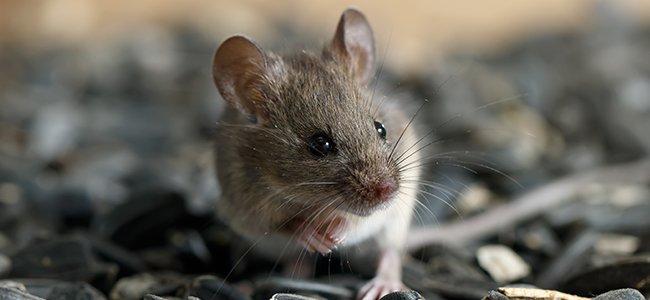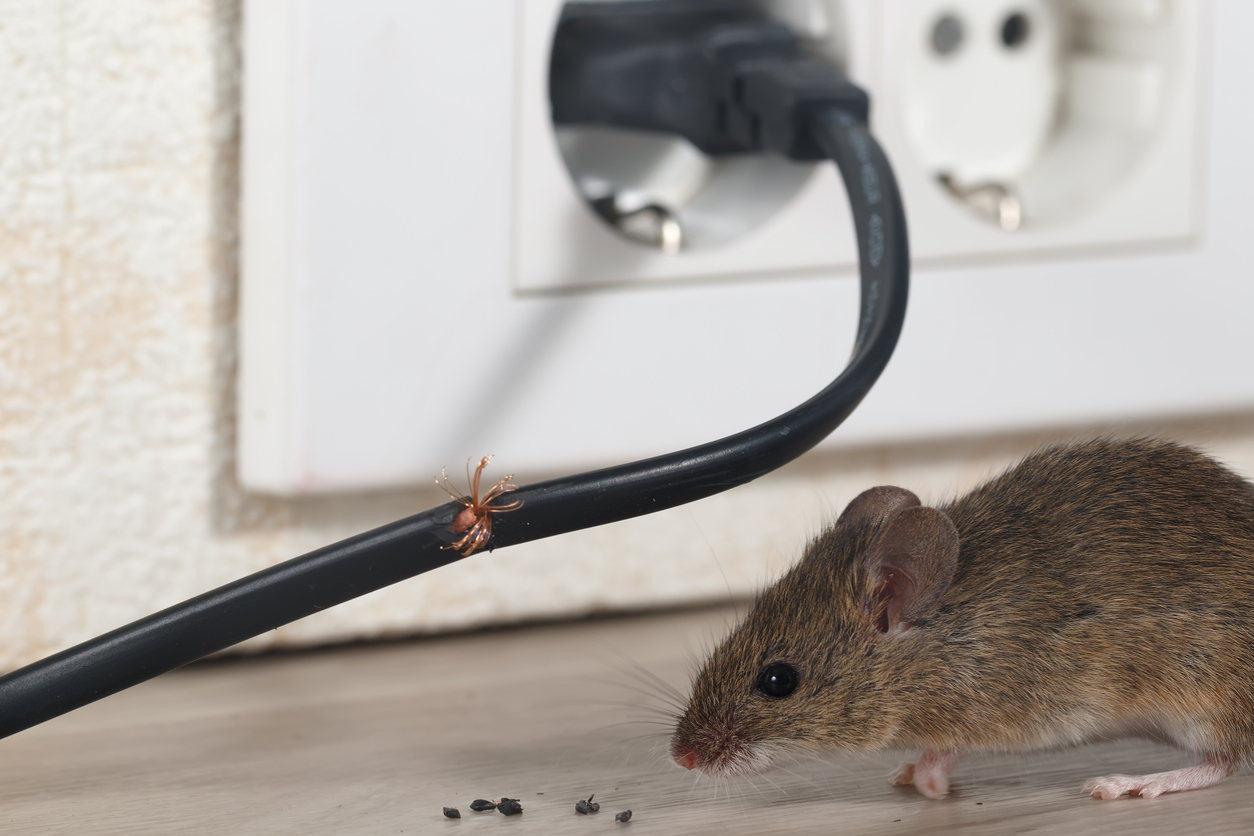Get a free estimate
If you have questions about our services, plans, or pricing we are here for you. Fill out the form below and we will communicate with you by email (and of course provide you with a free estimate).
FEBRUARY 24 2022 /
Taking care of your Columbia house can sometimes feel like a full-time job on top of your regular full-time job. There is always something to clean, repair, or plan.
The last thing you need in your already busy schedule is another problem to fix. If house mice get into your home, you could have a big problem on your hands.
Although it’s safe to assume that no one wants a rodent infestation in their home, most people are unaware of the dangers that come along with these tiny, furry creatures.
Several species of mice could potentially get into your Columbia home, but the most likely invader is the common house mouse.
Unlike deer mice that prefer the outdoors, house mice enjoy living inside of structures. If they can get inside your house, they’ll gladly find an area to nest and make themselves at home.
House mice are around three inches in length, which is about the length of a credit card. Adding the length of their tails doubles their total size.
They can vary in color but are often dusty gray with creamy underbellies and bare tails. House mice have pointed noses, beady eyes, and big ears.

Although house mice prefer certain foods, they’ll eat just about anything.
When out in the wild, they enjoy seeds and grains, and will also eat nuts, fruits, and insects. When they get into your house, they’ll eat almost any food that humans consume.
House mice are social creatures that live in groups. They breed rapidly, with a female mouse able to give birth every three weeks to a litter of up to a dozen babies.
That means that one single female could potentially add around 200 mice to their group in just one year, and that doesn’t take into account all the other females of reproductive age.
House mice prefer to nest in dark, secluded areas, such as attics, basements, or inside wall voids.
They create nests out of a variety of materials, many of which they’ll find in your house. They’ll use fabric, insulation, paper products, and other materials to build their nests.
House mice are one of the most common pests to invade homes. In fact, it’s estimated that around 21 million homes in the United States end up with a rodent infestation every year.
Because they’re so common, many people don’t think house mice are anything to worry about.
Although they don’t want them to get into their house, they don’t think there’s any serious cause for concern if house mice do get inside.
Unfortunately, this could not be farther from the truth.
House mice are extremely dangerous for several reasons. The first is because of the health risks they present.
Not only do house mice carry pathogens on their bodies, but they also spread pathogens through infected feces.
Wherever they travel in your home becomes contaminated. If mice get into your food stores, the food will need to be thrown away. If they walk across your countertops or food prep areas without your knowledge, you can end up contracting one of the illnesses they spread.
One of the most common illnesses house mice are known to spread through their droppings is salmonellosis.
This type of food poisoning will lead to nausea, diarrhea, and abdominal pain. Mice are also known to spread rat-bite fever, hantavirus, and even bubonic plague.
House mice can also cause allergy and asthma symptoms in children through their urine and feces.
They also can introduce parasites, such as ticks, fleas, and mites, into your house, which can then spread several other dangerous illnesses to your family.
Not only are house mice a threat to your health, but they are also a threat to your home. Mice cause serious damage to your house when they get inside in several different ways.
Perhaps the least serious damage they’ll cause is damage to your belongings. If you have storage boxes that mice can infiltrate, they’ll damage whatever is inside.
However, it’s the damage to your house that is the real cause for concern. House mice will make a big mess wherever they decide to nest.
Since this is where they’ll spend the bulk of their time, they’ll destroy the area with urine and feces. Not only does this damage the immediate area, but it also causes health problems for your family.
The bulk of the damage they cause results from their incessant chewing.

Mice are rodents, and rodents have incisors that never stop growing. To keep these teeth at a manageable length, mice must continually find things to chew on to keep their teeth from getting too long.
When house mice get into your house, they will chew on your walls, insulation, ductwork, pipes, and electrical wiring.
While some of this damage will simply be a nuisance to fix, some of it can cause problems in your home.
Damaged pipes can lead to water leaks and eventually mold problems. Damaged insulation will leave your drafty, less energy efficient, and susceptible to mildew from urine and droppings. Damaged wiring can lead to fires.
Although house mice may be furry and cute, they are truly a menace to any house they invade.
The health risks and property damage they can cause are enough to make anyone realize that protecting your house from these pests means protecting the health of your family as well as the integrity of your home.
Although house mice can invade your Columbia home at any time of year, they are most likely to try to get inside in the fall as the weather gets cooler, and outdoor food sources begin to dry up.
Preventing them from getting into your house takes a little bit of work, but it is well worth the trouble.
The following tips will help you prevent house mice from getting into your Columbia house.
Mice can squeeze through impossibly small holes. In fact, a hole the size of a dime is large enough to allow a mouse through.
Check around the perimeter of your house, looking for any holes, gaps, or cracks in your foundation, siding, or roof.
Take note of all that you find, even if they’re small. Since mice are so good at chewing, they can easily make a small hole big enough to fit through.
Once you have a list of possible entry points, seal them with caulking, steel wool, or silicone, depending on the size of the area that needs to be repaired.
One of the reasons mice will try to get into your house is to access the abundance of food. Eliminating as many food sources as possible in and around your house will make your home less appealing to house mice.
Outside, you can eliminate food sources by:
⭐ Keeping pet dishes indoors
⭐ Removing bird feeders
⭐ Keeping garbage bins tightly closed and stored away from your house
Inside, you can eliminate food sources by:
⭐ Storing food in hard plastic or glass containers
⭐ Not leaving food out on the counter
⭐ Washing dishes immediately after use
⭐Wiping down countertops after meals
⭐ Sweeping the floor and cleaning up crumbs and messes regularly
⭐ Removing the trash regularly
Like most pests, house mice protect themselves by staying out of sight.
House mice will be less likely to get close to your house if they have nothing to protect them from view as they make their way towards your house.
Similarly, if they do get inside, they’ll be less likely to want to stay if they can’t find a place to hide. You can eliminate hiding spots by:
⭐ Keeping grass trimmed short on your lawn
⭐ Cutting back bushes and shrubbery around the perimeter of your house
⭐ Relocating woodpiles that are near your house
⭐ Considering removing stone walls from your landscaping
⭐ Cleaning out clutter from rooms that are infrequently used in your home.
Like any living being, mice need food, shelter, and water to survive If you have excess water sources in or around your house, mice will be more likely to try to get inside. You can eliminate these sources by:
⭐ Removing bird baths
⭐ Keeping pet dishes inside
⭐ Not over-watering potted plants
⭐ Making sure your property has proper drainage
⭐ Checking for and repairing water leaks, both indoors and out
Unfortunately, even by performing all of the prevention tips mentioned above, house mice may still find a way to get into your Columbia home. If you think you have a mouse infestation, taking action as soon as possible is the best way to minimize health risks and mitigate damage to your home.
If you’re unsure whether mice are in your house, there are several signs they leave behind that can alert you to their presence. These include:
⭐ Small, black, rice-shaped droppings
⭐ Uneven holes in food stores and cardboard boxes
⭐ Gnaw marks on walls, cabinets, baseboards, or other areas
⭐ Scratching or scampering noises coming from your ceilings or walls
⭐ Dirty, oily rub marks along your baseboards
⭐ Nests hidden tucked away in secluded areas of your home
When you suspect a house mouse infestation, contact American Pest. We take a comprehensive approach to rodent control that not only eliminates your active infestation in its entirety, but we also ensure that a new infestation won’t occur.
With nearly 100 years of service and experience, American Pest is the right company to choose if you want an efficient and effective solution to your house mouse problem. Contact us today to learn more about our house mouse service options.